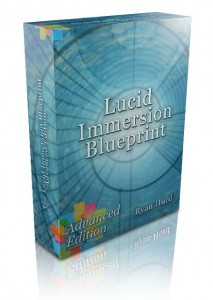
As a lucid dreaming teacher, I hear from a lot of people who wish they could go lucid more frequently. When I ask what is the plan being using to stir up more lucid dreams, they usually list off a dozen different induction practices. At this point, I already know the problem: they are mistaking lucid dreaming tactics for strategy.
Tactics are specific behaviors you enact to reach a goal. On the other hand, strategy is your overarching plan of operation: how and when and under which circumstances to employ certain tactics. Strategy is the big picture; tactics are the nuts and bolts.
In short, a lot of trouble with lucid dreaming induction as it is usually discussed today is that few people have a real plan. I’m convinced this is why so many beginner lucid dreamers lose heart, and so many others burn out trying too many lucid induction practices all at once.
This is a major motivational issue that has hampered the lucid dreaming education movement for a long, long time. We’re just not wired to pick up a dozen new habits when there’s no guarantee of any discernible result within a defined period of time.
I made this mistake myself for years, and it all came to head when I stupidly staked my graduate school career on the ability to have lucid dreams.
In 2006, I decided to write my Masters thesis on lucid dreaming–not just studying lucid dream research, but studying my own lucid dreams– dreams I hadn’t had yet.
After my proposal was accepted, I thought I would be excited, but I actually broke out in a cold sweat.
What have I done? I thought.
Not only had I committed to writing about lucid dreams I hadn’t had yet, but I had proposed a very specific and difficult protocol in the dreams when I became lucid.
What if I couldn’t pull it off?
My fears turned out to be justified.
In the first month, I had only two lucid dreams in which I remembered the task I intended to perform in the dream. At this rate, I’d never reach my goal. I began to panic, as I was doing all the usual induction techniques we all know so well: reality checks, journaling before bed, MILD, et cetera.
Maybe I’m putting too much pressure on myself, I thought.
After all, I had seen the lucidity dampening effect before, especially in classes and workshops when there is social pressure to perform. Instead of having more dreams, people just freeze up and their dream-lives go silent.
In despair and frustration, I collapsed when the winter holidays arrived, ceasing all lucid induction practices. I was burned out.
And of course, you know what happened next: while I was on vacation, I had lucid dream after lucid dream. It was almost comical. I felt like my dreaming was playing a joke on me.
After the holidays, I started up with the practices again, but this time, I was more exacting about when I was trying to induce lucid dreams. I built a strategy based on what I had discovered spontaneously.
Rather than always trying, I followed a week or so of focused intent with some time off.
It worked.
 The combination of a structured induction time followed by relaxation quickly gave me enough lucid dreams to use for my research project. Whereas the first five lucid dreams took place over a span of two months, the next five took place in half that time. In other words, I doubled my lucid rate.
The combination of a structured induction time followed by relaxation quickly gave me enough lucid dreams to use for my research project. Whereas the first five lucid dreams took place over a span of two months, the next five took place in half that time. In other words, I doubled my lucid rate.
I learned from this process that doing lucid practices is not enough.
The lucid incubation must be focused, having strong boundaries and—just as importantly—a time for resting built in. I named this strategy lucid immersion. Just like learning a language, the fastest and most sustainable path to lucid dreaming is immersing yourself in the culture of lucidity.
Interested in taking your lucid dreaming practice to the next level? Check out my digital kit the Lucid Immersion Blueprint. This article is adapted from the Lucid Immersion Guidebook.
First Image: Empire the board game, Reed College, CC 1963.
Is it really a mistake? Isn’t there the possibility that the struggle you had first actually triggered or made you learn lucid dreaming, and then when you rested your brain organized the information?
Good post,
Cheers
hey Miguel, you’re totally right — during the resting period something happened from all those tactics. But which ones? That’s the trouble — without testing and resting, we don’t really know. That was my “a-ha” moment.
I have actually been ‘haunted’ by lucid dreaming since I was a child . I was searching for a way to control them , stop them. At the age of 27 I have finally managed to cope with them:)
Hi Monica, yep, me too. The bulk of my academic research is on lucid nightmares, in fact. I’d like to hear more about what has worked for you, and what you do to cope with these experiences. Here’s an article about the topic I wrote a while back that goes into some tactics that have worked for me: http://dreamstudies.org/2008/10/13/lucid-nightmares-fear-initiation-and-beyond/
Hi Ryan, I have a very strange lucid dreams these past few days. Well, lucid dreaming is not new to me, but this one is a bit scary. Cause i can really fell their presence. Last night i think i saw something in top of me while im sleeping. It has red eyes and its quite skinny.. I can’t even move a muscle.. but when i closed my eyes and prayed.. its gone.
Hey Lalyn,
that sounds a lot like a sleep paralysis dream… have you ever heard of that? It’s like being stuck in between waking and dreaming, and is sometimes accompanied by feelings of being held down by something sinister. I’m not making this up.
Here’s more about sleep paralysis nightmares– they aren’t so scary once you learn about them! http://dreamstudies.org/2010/01/22/sleep-paralysis-treatment-wake-up-cant-move/
Hi okay so I’ve been having these strange lucid dreams for close to a year now and they are not happy ones. What’s so weird about it is that I can sense when this certain dream is coming. While I’m laying in bed trying to sleep I will of of a sudden get the head rush, like when you reach the peak of a yawn. And right when that happens I have to get up ad move around an readjust completely different from how I was laying to not get that dream. I sense it at different times of the day too and go into a day dreaming state of it. It’s very scary. I want to learn how to control it and get rid of it. It’s almost demoic. Please let me know if you can help. Thanks, Madison.
I know that feeling!.for 2 yrs now since i was 17. Right before i fall into lucid dreaming. I just feel a deep sleep feeling rushing to my head. The thing is i never wanted this or was looking to have these really crazy dreams. I get this feeling like 2to 3 times a night and i have to get up right away and shake it off. Or else. I start feeling high out of my mind and i have out of body feelings. And i have never done drugs before nor do i take sleep aid. Its scary though. I would like to just go to sleep normally with normal dreams and not worry about falling into lucid dreams.